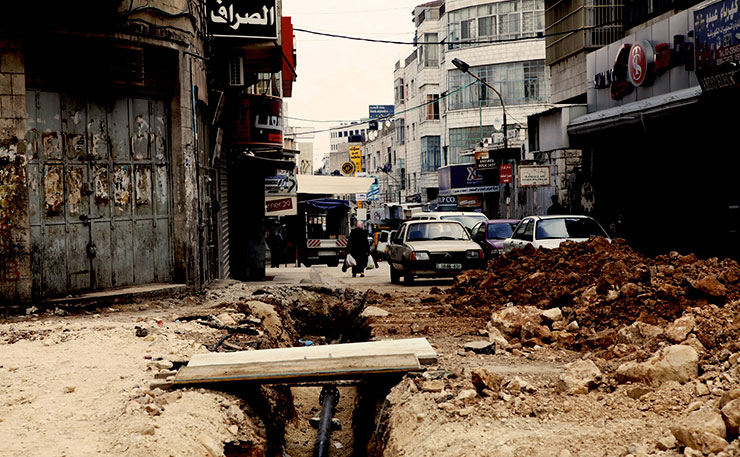It’s hard to imagine things getting worse for Palestine, a nation ravaged by Israel and international indifference. But Senator Lee Rhiannon fears that’s exactly what will transpire under a US Trump administration, with help from Australia.
It is said to be days away – the grand unveiling of Trump’s plan for peace between Palestinians and the Israelis.
Confident of a free hand under the Trump administration, Israeli Prime Minister Benjamin Netanyahu has already begun to increase Israel’s hold over Jerusalem, the West Bank and the besieged Gaza strip. His hubris, and that of his government, is evident in the passing of the new Israel Nation State law which enshrines exclusive rights to Jewish Israelis at the expense of equality for all citizens.
Meanwhile US President Donald Trump is working to ensure that Palestinian demands and national rights are eliminated.
There has been almost 30 years of failed negotiations between the Palestinians and Israelis. At every attempt the Palestinians have maintained a minimum set of demands recognised by international law: the rights of Palestinian refugees and the establishment of a capital in East Jerusalem.
And the Israelis? They have refused to accept a divided Jerusalem, to resolve the refugee issue and accelerated the expansion of illegal settlements. Then came the dawn of Trump and his “deal of the century” with promises of success where others have stumbled.
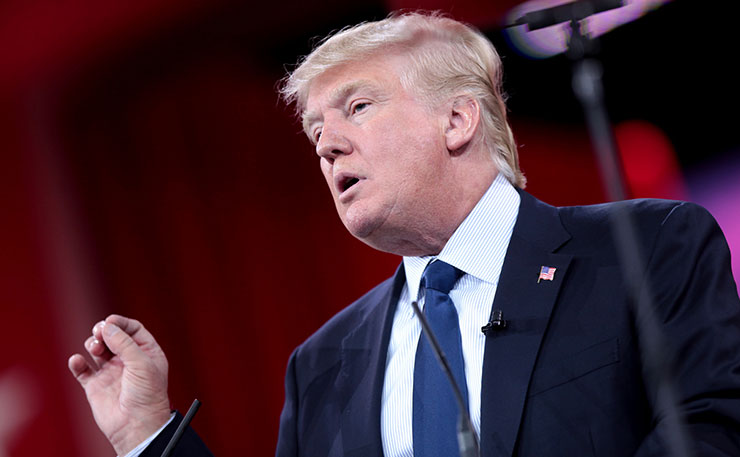
Speculation about the so-called “deal of the century” came up in many discussions when I was in Lebanon earlier this year visiting some of the Palestinian refugee camps established after the 1948 ethnic cleansing of Palestine and the establishment of the Israeli state. I wrote this article about my tour of the Bourj el-Barajneh camp, one of the larger camps established in Beirut.
My visit took place at the tail end of Trump’s announcement to move the US Embassy to Jerusalem, and the decision by the US government to withhold more than half of its contribution to the United Nations Relief Works Agency (UNRWA). This agency was established in 1949 as a temporary agency to support the lives of Palestinian refugees “pending the just resolution of the question of the Palestine refugees”.
Millions of Palestinian refugees living in Lebanon and across the region, including in camps in the West Bank, Gaza and Jerusalem are dependent on UNRWA, which provides health, education and welfare services as well as crucial employment opportunities for Palestinian refugees.
I saw the impacts in Lebanon after only two months of funding cuts. Schools were being merged to save on the cost of teachers and principals, administration staff numbers reduced, fewer breakfasts for schoolchildren were being provided and the supply of books and pencils cut.
I met with UNRWA officials and we talked about the layers of marginalisation for refugees. I heard their concerns of imminent humanitarian catastrophe should their frantic search for alternative funding turn up short.
The cuts to UNRWA are part of a wider agenda. The withdrawal of funds to UNRWA is a clear attempt by the US administration to satisfy Israel’s longstanding wish to eliminate the issue of Palestinian refugees from the Israel-Palestine equation. Netanyahu made this clear when he said in a cabinet meeting: “UNRWA is an organization that perpetuates the Palestinian refugee problem. It also perpetuates the narrative of the right of return, as it were, in order to eliminate the State of Israel; therefore, UNRWA needs to pass from the world.”
Underpinning this narrative is the belief that Palestinian refugees exist not because of the crimes of ethnic cleansing and continued denial of their right to return home, but because of UNRWA.
Based on the internal emails from within the US Administration that have been obtained by Foreign Policy, it is clear that Trump and his team wholeheartedly agree with this approach.
This is the groundwork for the “deal of the century”.
The Team
There has never been a neutral broker to Palestinian-Israeli peace talks, but the team under Trump is a who’s who of ardent supporters of Israeli expansionism. They are as far removed from the point of neutral as any that have come before them.
Trump’s real-estate developer son-in-law Jared Kushner was appointed to the role of Middle East envoy. Kushner may lack diplomatic experience, but what isn’t lacking is his enthusiasm and financial support for illegal Israeli settlements and extremist Jewish settler groups in the West Bank.
Former real-estate lawyer and now Trump’s Special Representative for International Negotiations Jason Greenblatt is also on this team. Having lived and served as a security guard in a West Bank Jewish settlement, Greenblatt’s expertise on Israeli affairs is almost completely derived from materials supplied by the pro-Israeli lobby group American Israel Public Affairs Committee.
Kushner and Greenblatt have the support of real-estate lawyer turned US Ambassador to Israel David Friedman. Friedman was formerly the president of American Friends of Beit El Yeshiva, a religious school in an extremist Jewish settlement in the West Bank that was established, as many illegal settlements are, on private Palestinian land.
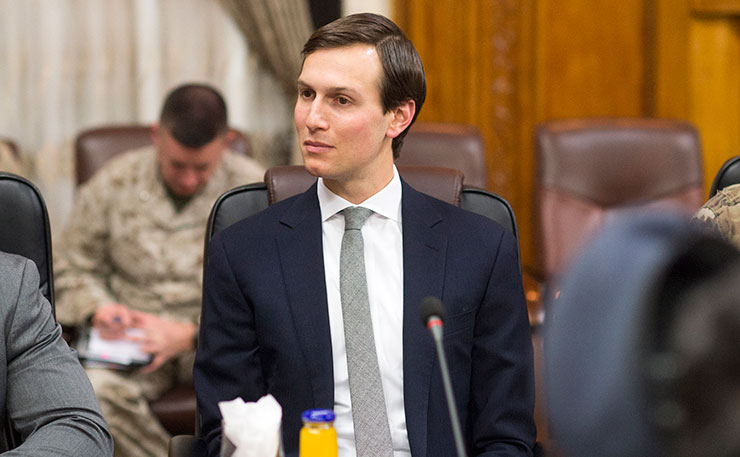
Trump and his team all have a real-estate background. This may be coincidental, but the evidence of Kushner and Co.’s wheeling and dealing approach is difficult to dismiss. A new ‘capital’ for the Palestinians in a village near Jerusalem in exchange for Israel taking over all of Jerusalem, and a land swap trading a small patch in the northern Sinai for the illegal Israeli settlement blocs are some of the details that have so far filtered through. Gaza, severed from the West Bank, will be carved off to Egypt to establish a high security enclave, possibly a low wage captive export processing zone.
One problem – and there are many – is that Palestinians don’t think of their homeland as real-estate. Justice isn’t an economic transaction and neither is home.
For 70 years Palestinians have been demanding their internationally recognised right to return to their homes and determine their own future. For persisting in demanding their basic human rights Palestinians have been dispossessed, massacred, occupied, jailed, tortured, starved and dehumanised.
Kushner demonstrated his lack of care or understanding of the situation when he said that the “Palestinian people are less invested in the politicians’ talking points than they are in seeing how a deal will give them… more and better paying jobs and prospects for a better life.”
Kushner’s assertion that millions of Palestinians have been putting their bodies on the line for employment opportunities left prominent journalist and Middle East commentator Robert Fisk wondering if Kushner was delusional.
Delusion combined with power is a dangerous thing.
The Politicisation of Humanitarian Aid (and Australia’s role)
As more details of the Trump-Kushner “deal of the century” come out it becomes clearer that this is a plan Palestinians will never accept. For the Palestinians this “deal” means no sovereignty, no control over their economy or security, no recognition of the crimes of the Nakba or the ongoing crimes against Palestinian refugees and absolutely no right of return. No justice. No dignity.
Egypt, Saudi Arabia, and Jordan along with the Emirates, who all stand to benefit from the Trump-Kushner deal, have been brought into the fold to pressure the Palestinian Authority to play along. When the PA refused to engage, the Trump team shifted the narrative: there is no need to involve the PA as they are not good for the Palestinians anyway.
This brings us to the pawn that is humanitarian aid.
Striving to establish a checkmate and force the acceptance of the unacceptable, the pressure on the PA has been increasing. In March Trump signed the Taylor Force Act which cuts US funding to the PA over what it claims are “terrorist incentive” payments.
Further pressure came with Israel passing a bill to drastically reduce the transfer of Palestinian tax revenues to the PA collected and controlled by Israel under agreements from the Oslo peace accords.
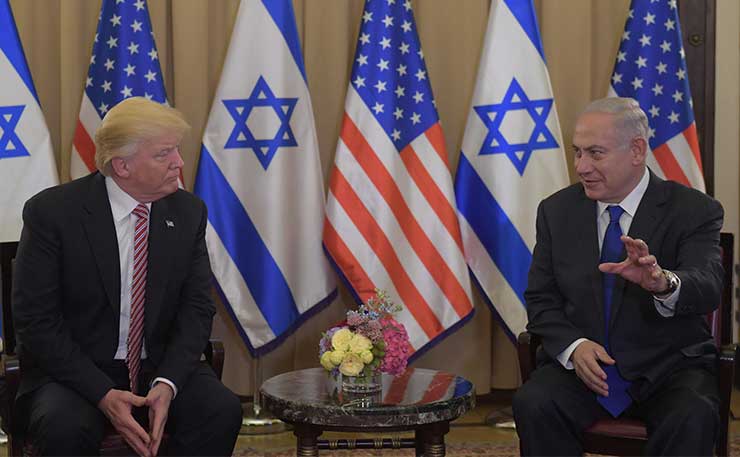
In the systematic dehumanisation of Palestinians the claims that the families of “terrorists” are rewarded with a PA stipend is a recurring line of attack by Israel and its lobby. The reality is, many of these families are families of Palestinians who are political prisoners in Israeli gaols or who have been killed by Israeli military attacks.
That Palestinians have the right to participate in political activity, or that the PA is responsible for the welfare of the Palestinians living under Israeli occupation is completely disregarded.
If you believe the right-wing media any Palestinian who engages in any activity against the illegal and brutal occupation is a “terrorist.” The lack of acknowledgement of the international rights of Palestinians to resist a violent occupier is absent from the debate.
Rather than trifle with international laws Israel prefers to demonise Palestinians at every opportunity, and they are supported in these attacks by uncritical allies. On the same day that the bill in Israel was passed, the Turnbull government announced a similar axing of funds to the PA.
In the game of “diplomacy” everyone has a critical role to play – even the minor players like Australia.
But it isn’t just the payments to the PA that are being cut. Humanitarian aid projects are increasingly on Australia’s chopping block.
When I visited Gaza in 2013 I saw the lifesaving role of overseas aid including the assistance from Australia. My Gazan tour took place six years into the Israeli imposed blockade that is supported by Egypt. It was a year after Israel had subjected the population to a second military bombardment and a year before Israel would again embark on a brutal and devastating assault that killed over 2,000 Palestinians of which nearly 500 were children.
The head of the Gaza division of UNRWA told me on that trip that Gaza is expected to become unliveable by 2020. Two years later that prediction was revised down. 2020 was too optimistic.
More than half of Gaza’s two million Palestinians are dependent on aid from UNRWA and other humanitarian agencies. In 2016 Israel launched its attack on World Vision in Gaza, with charges that literally didn’t add up, and a “confession” likely extracted via torture. The accused employee Mohammed El Halabi is still in an Israeli prison as his ‘trial’ continues. Despite no evidence of foul play the Australian government suspended its contributions to World Vision projects in Gaza.
More recently Union Aid Abroad-Apheda came under attack, this time via Murdoch’s Daily Telegraph, after a former worker in a Palestinian organisation (not for Apheda) was shot dead in protests inside Gaza on 14 May. Foreign Minister Julie Bishop’s response was to protect herself from extremist elements in the Liberal Party by announcing an audit and suspension of Apheda’s Gaza projects.
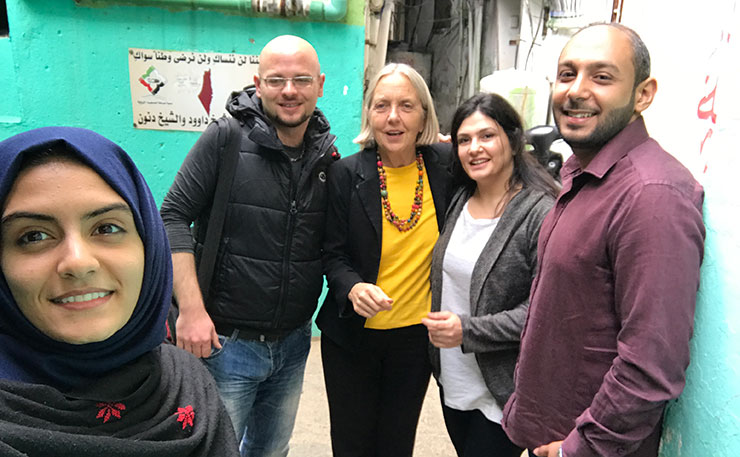
The Turnbull government doesn’t need “legitimacy” from Israeli authorities or even viable allegations to drop the axe on aid projects. Besides which, there is the added bonus of attacking unions and mudslinging the opposition.
Humanitarian aid has always been a target for conservative politicians, but these latest attacks are not only more extreme, they complement the Trump-Kushner deal and the far-right pro-Israel lobby agenda.
In the recent May Senate Estimates I watched as a series of questions were put to the Department of Foreign Affairs and Trade by Senators Eric Abetz and David Leyonhjelm. Their questions strongly focussed on Australian aid to Palestinians with the clear intention to have the payments drastically reduced or completely cut.
Weeks before the May estimates, Leyonhjelm participated in an all-expenses paid tour of Israel run by the Australia/Israel Jewish Affairs Council (AIJAC). Speaking at a lunch hosted by AIJAC, Leyonhjelm declared that he would ask “awkward questions” about Australia’s funding to UNRWA.
The questions would be awkward, according to Leyonhjelm, because UNRWA was evidently not in need of aid money at all. “You’d struggle to call it a refugee camp. I’ve seen worse, much, much worse … the popular image of a refugee camp is rows of tents and food kitchens and all those sorts of things, [it was]nothing like that at all,” Leyonhjelm said.
Recent work of former One Nation turned Katter’s Australian Party Senator Fraser Anning shows he has also taken up the mantle of anti-Palestinian activities. He has opened his Senate office to the president of the ultra-conservative pro-Israel Australian Jewish Association to push the lobby group’s agenda and he has been taking this work into the Senate making slanderous speeches accusing the PA of running a “pay-to-slay program”, adding to the pressure on the Turnbull government to cut funds for Palestinian programs.
Never underestimate the drive of minor party politicians striving to raise their profile for re-election.
Other MPs have long been making use of the platform the Australian parliament provides to denigrate the PA, attack Palestinian refugees and question Australian funds going towards humanitarian aid to Palestinians. As these attacks mount, more Australian parliamentarians and journalists are enjoying all expenses paid “study tours” to Israel run by AIJAC and other pro-Israel lobby groups.
Never underestimate the impact of a well-funded lobby group.
As a co-founder of AID/WATCH and during my work as Senator I have seen first-hand the way humanitarian aid is used as a political tool at the expense of the world’s most vulnerable people.
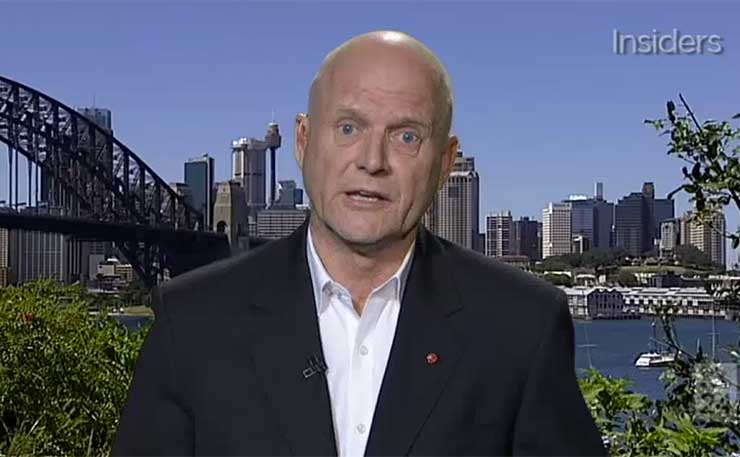
Palestinians are and have been reliant on international humanitarian aid for one reason only. For 70 years Israel has denied them their rights as it systematically destroyed their economy. The cutting of humanitarian aid is yet another form of collective punishment meted out to a people long denied justice.
Living under a violent occupation or in extreme poverty in overcrowded refugee camps has left Palestinians in a weakened position to handle negotiations. Eradicating their demands and trying to force their hand before new negotiations is a cruel, calculated political manoeuvre.
Instead of challenging the extremist Israeli agenda running full steam ahead under the Netanyahu-Trump bromance, the international community has been relatively quiet. The lack of criticism following Australia’s aid cuts provides further evidence of how accepting of injustice we can be.
Australia and the world should be increasing, not cutting aid to Palestine whilst supporting the valid aspirations of Palestinians to self-determination. It is what would make the difference between a genuine peace agreement and forced submission of the Palestinians, which is the essence of the Trump-Kushner deal.
Donate To New Matilda
New Matilda is a small, independent media outlet. We survive through reader contributions, and never losing a lawsuit. If you got something from this article, giving something back helps us to continue speaking truth to power. Every little bit counts.

